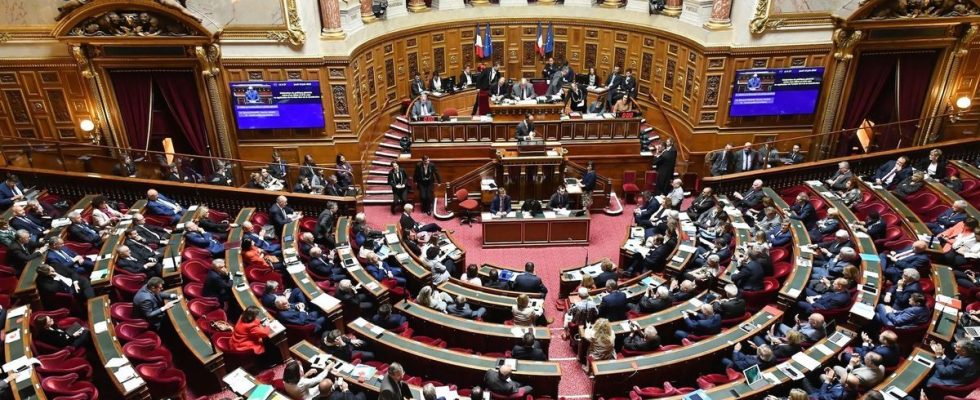Published on
Updated
Reading 3 min.
The abolition of State Medical Aid was validated by the Senate. But the text must still go before the National Assembly. Before this examination, many learned societies, doctors’ unions, hospital centers, etc. are stepping up to oppose this amendment.
State medical aid: what are we talking about?
State Medical Assistance (AME) is a social assistance system allowing foreigners in an irregular situation residing on French territory for more than 3 months (from the 1st day for children) and under conditions of resources, to benefit from coverage for their care in community medicine and hospital within the limits of social security rates and with a reduced basket of care. This system must be renewed every year and, in 2022, concerned 415,000 beneficiaries for a budget estimated at around one billion euros, or less than 0.5% of total health spending.
Despite a strong mobilization of caregivers and scientists, an amendment proposing the abolition of the AME, in favor of “emergency medical aid” with a restricted scope was voted in the Senate on November 7, 2023 during the examination of the immigration bill.
25 learned societies and professional groups against the reduction of the AME
This text must now pass before the National Assembly in December and this is why 25 learned societies and professional groups are mobilizing today to oppose this limitation and the delay in access to care for a population that is already particularly vulnerable.
According to them, such a decision would lead to an increase in the use of urgent hospital care, which is more complex and more expensive. They call this amendment “nonsense in terms of public health, but also economic, and is nothing more or less than a serious attack on the principles of human rights guaranteeing the right to health and care for all on French territory and European“.
A decision that could worsen the situation of hospitals
Faced with the argument according to which this MEA would constitute a breath of fresh air for illegal immigration, the signatories emphasize that “the reasons for leaving are most often linked to studies, economic, family or linked to insecurity“. Moreover, the device is currently so complex that “almost half of foreigners eligible for AME do not use it, including those with chronic illnesses“.
The impact on the foregoing of care for this population would, however, increase delays in diagnosis and treatment and therefore ultimately the management of advanced-stage pathologies and discharges from hospitalization for follow-up care and near-rehabilitation. impossible, “thus placing costs on the already largely weakened public hospital system“.
Economic, health and ethical nonsense
The same decision taken in Spain in 2012 concluded that there was an increase in the incidence of certain diseases (including communicable ones) as well as an increase in the mortality rate in this population, leading the Spanish government to back down and restore this access taking care.
The signatories thus believe that “far from limiting expenses, the abolition of the AME would place on the public hospital system the weight of political decisions far from reality and in contradiction with the principles of public health, not to mention the additional costs that this will entail as has been demonstrated elsewhere“.
What does the Emergency Medical Aid intended to replace the AME provide?
The immigration bill therefore plans to replace the AME with more restrictive emergency medical aid. Access to care for foreigners in an irregular situation is reduced to a base refocused on serious illnesses, care related to pregnancy, vaccinations and preventive medicine examinations.
In total, learned societies, colleges, federations, unions and medical associations (list below) call on the deputies of the National Assembly and the government not to eliminate State Medical Aid and to oppose all restrictions on its perimeter.
List of signatories:
Learned societies
- French-speaking infectious pathology society (SPILF)
- French Society for the Fight against AIDS (SFLS)
- French Society of Emergency Medicine (SFMU)
- French Public Health Society (SFSP)
- College of General Medicine (CMG)
- French-language intensive care society (SRLF)
- French Society of Pediatrics (SFP)
- French-speaking Society of Tropical Medicine and International Health (SFMTSI)
- National College of Teaching Generalists (CNGE)
- French Society of French-speaking Pneumology (SPLF)
- General Practitioner Therapeutic Training Society (SFTG)
- Society of Travel Medicine (SMV)
- French Society of Geriatrics and Gerontology (SFGG)
- French Society of Microbiology (SFM)
- French Society of Virology (SFV)
Other professional groups
- National PASS coordination
- National Conference of Presidents of CME and CMG of Hospital Centers (CMECH)
- National Conference of CME Presidents of University Hospital Centers (CMECHU)
- National Federation of Health Centers (FNCS)
- Union of Health Center Physicians (USMCS)
- National Union of PMI Doctors (SNMPMI)
- National Consultative Ethics Committee (CCNE)
- SAMU Urgences de France (SUDF)
